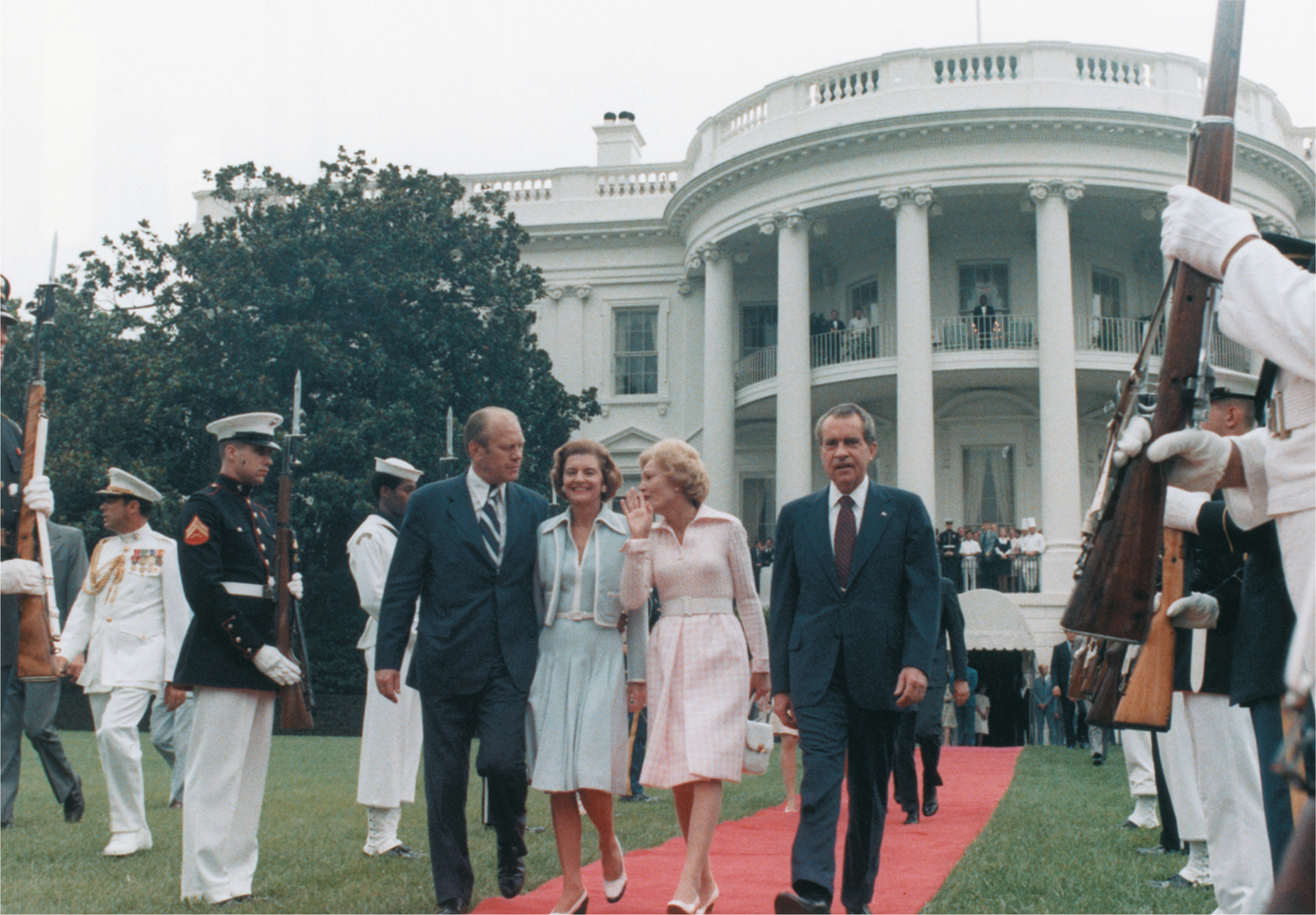Watergate
During the early-
Nixon was not the first president to lie to the public or to misuse power. Every president since Franklin D. Roosevelt had enlarged the powers of his office in the name of national security. This expansion of executive powers, often called the “imperial presidency,” weakened the traditional checks and balances on the executive branch and opened the door to abuses. No president, however, had dared go as far as Nixon, who saw opposition to his policies as a personal attack and was willing to violate the Constitution to stop it.
Upon learning of the Watergate arrests, Nixon plotted to manipulate the Central Intelligence Agency (CIA) and Federal Bureau of Investigation (FBI) to conceal links between the burglars and the White House, while publicly denying any connection. In April 1973, after investigations by a grand jury and the Senate suggested that White House aides had been involved in the cover-
Meanwhile, speaking before a Senate investigating committee headed by Democrat Samuel J. Ervin of North Carolina, White House counsel John Dean described projects to harass “enemies” through tax audits and other illegal means and implicated the president in efforts to cover up the Watergate break-
Additional disclosures exposed Nixon’s misuse of federal funds and tax evasion. In August 1973, Vice President Spiro Agnew resigned after an investigation revealed that he had taken bribes while governor of Maryland. Nixon’s choice of House minority leader Gerald Ford of Michigan to succeed Agnew won widespread approval, but Agnew’s resignation further tarnished the administration, and Nixon’s popular support plummeted.
In February 1974, the House of Representatives voted to begin an impeachment investigation. In April, Nixon began to release edited transcripts of the tapes. The transcripts revealed Nixon’s orders to aides in March 1973: “I don’t give a shit what happens. I want you all to stonewall it, let them plead the Fifth Amendment, cover up or anything else, if it’ll save it—
In July 1974, the House Judiciary Committee voted to impeach the president on three counts: obstruction of justice, abuse of power, and contempt of Congress. Seven or eight Republicans on the committee sided with the majority, and it seemed certain that the House would follow suit. Georgia state legislator and civil rights activist Julian Bond commented, “The prisons of Georgia are full of people who stole $5 or $10, and this man tried to steal the Constitution.”

To avoid impeachment, Nixon announced his resignation to a national television audience on August 8, 1974. Acknowledging some incorrect judgments, he insisted that he had always tried to do what was best for the nation. The next morning, Nixon ended a rambling, emotional farewell to his staff with some advice: “Always give your best, never get discouraged, never get petty; always remember, others may hate you, but those who hate you don’t win unless you hate them, and then you destroy yourself.” Had he followed his own advice, he might have saved his presidency.